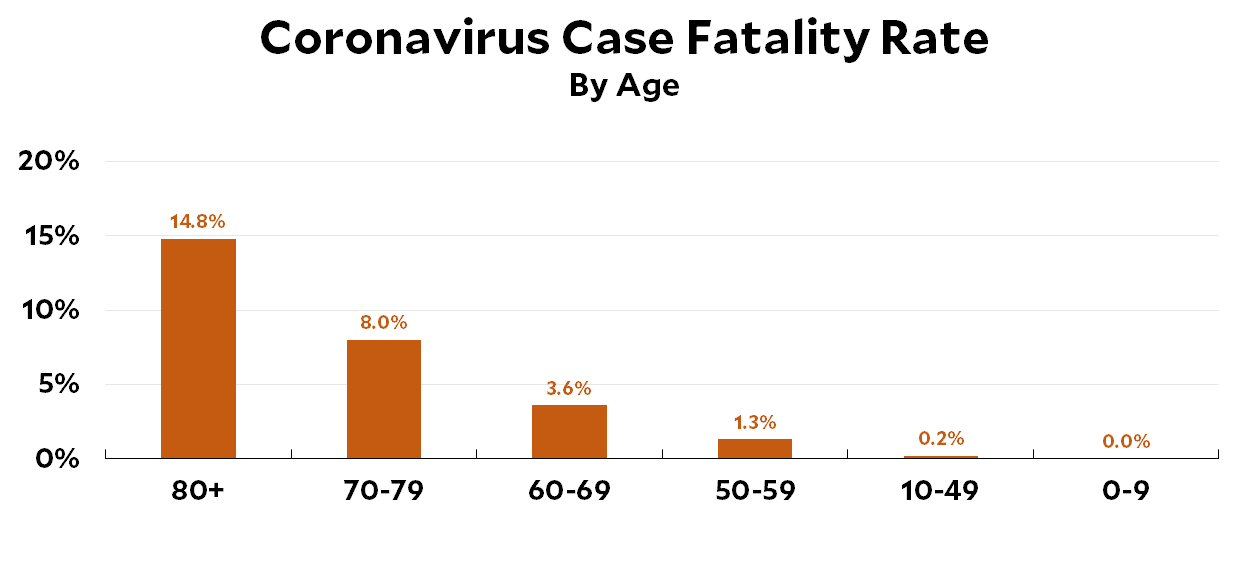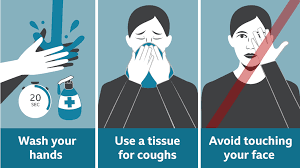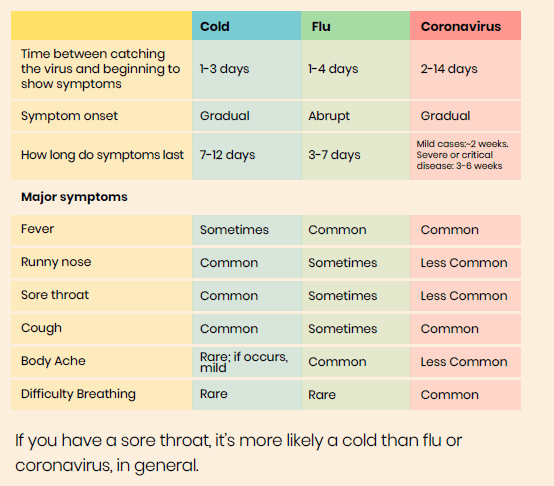Novel Coronavirus (Covid-19) Pandemic-Everything You Need to Know about Coronavirus (Symptoms, Precautions): There’s a lot of information on the internet regarding Novel Coronavirus. With the rising panic related to the disease, it is important to know the actual facts and listen to what the credible sources have to say. We discussed the most common queries related to the Novel Coronavirus with the various experts from the reputed institutes and also referred to the CDC, WHO, and MoHFW guidelines. Here are the answers.
1. Basics First
Coronavirus disease 2019 (COVID-19) is an infectious disease that may cause mild-to-severe illnesses involving your upper respiratory tract (nose, throat, airways, lungs). It is caused by the newly discovered coronavirus, called as novel coronavirus (new name, SARS-CoV-2). This virus and disease were first identified in Wuhan, China, in December 2019.
2. How deadly is Coronavirus?
Coronavirus has “high infectivity but low mortality”, as per currently available information. Only 3.4% of globally reported cases have died. COVID-19 outbreaks can be contained, as has been shown in China and some other countries. We just need to be careful so that new outbreaks do not emerge.
3. Will I die if I catch the disease?
No. Symptoms of coronavirus may range from cough to pneumonia. Some people recover easily, others may get very sick very quickly. Most of the symptoms can be treated with timely medical care. Coronavirus overview. So far more than half of coronavirus patients worldwide have become better.
- Total no. of confirmed cases: 127,875 (Till the time article was written)
- No. of deaths: 4215 (Till the time article was written)
- No. of recovered cases: 68,972
4. Who is getting sick and how sick?
Though anyone can get the coronavirus infection, older people and people with pre-existing medical conditions (like heart disease, lung disease, cancer or diabetes) are more likely to catch it and develop serious illnesses more often than others. Their bodies might not fight infection well. But, most coronavirus led illnesses are generally mild, especially for children and young adults.
Older people are twice as likely to have serious COVID-19 illness. With advancing age, their immune systems change. It gets harder for their body to fight off diseases and infection. Underlying health conditions can make it harder to recover naturally from the illness.
5. Are children also at risk of coronavirus infection?
COVID-19 appears to be relatively rare and mild in children. Just over 2% of cases were under 18 years of age. Of these, fewer than 3% developed severe or critical disease.
6. So, how exactly does the Coronavirus spread?
It spreads from an infected person to a healthy person through eye, nose, and mouth, via droplets produced on coughing or sneezing, close contact, or contact with contaminated surfaces, objects, or items of personal use.
7. Can the novel coronavirus be passed on through food?
There is no such evidence as yet. But, experience with other coronaviruses like SARS and MERS suggest that people do not get infected through food. Coronaviruses need a host (animal or human) to grow in and cannot grow in food.
8. Can eating chicken or eggs cause Coronavirus?
Eating chicken or eggs is not an absolute no. The novel coronavirus is not known to spread directly through poultry products. But, experts say it can be a good option to have only properly cooked meat. Not much information is available on this.
9. Do I have coronavirus if I am coughing or sneezing?
For most people in most locations the risk of catching COVID-19 is still low. You can suspect to have coronavirus, only if you have symptoms (fever, cough, shortness of breath) + any out of these.
Travel history to a coronavirus-affected area (like China, Iran, Italy, South Korea, France, Germany etc.). Close contact with such a person Visiting a healthcare facility/ labs where Coronavirus patients are being taken care of.
10. Track what your symptoms
Coronavirus can get you symptoms like fever, cough, shortness of breath. They can be almost similar to common cold or flu and may appear 2-14 days of exposure. Severity of illness can vary in different people from mild to severe symptoms. If you have a fever, cold, or sore throat, don’t panic. Take good care of yourself.
- Inhale steam 2-3 times a day to clear off congestion
- Stay hydrated and get adequate rest*
- Visit a doctor if condition worsens or does not get better with time
- Washing your hands frequently can reduce the spread of the virus
- Take medicines as and when advised by the doctor
11. Cold Vs. Flu Vs. Coronavirus Cold
12. Should I be tested for coronavirus if I have high grade fever, cough and difficulty in breathing? Or can I get a coronavirus test done just for the sake of satisfaction?
No. Testing for coronavirus will only be done as recommended by the doctors only if someone falls under the definition of “suspected case (symptoms as well as a history of traveling to COVID-19 affected areas, or close contact with someone who is diagnosed as positive case of COVID19 or a health worker in a hospital/lab where suspected patients are being managed).
13. Why can only designated labs test coronavirus? Why can’t I get a home sample collection done for coronavirus testing?
It is because the virus is highly contagious and can only be tested by special labs equipped to handle such contagious pathogens. A high-level biosafety and high-class infrastructure are required to protect the lab members and prevent the outbreak that can be caused by release of the contaminated bio waste. Labs are assigned a bio-safety rating of 1 to 4, depending on what class of organisms they can feasibly contain. As of now, only “labs with biosafety level 4 (BSL4)” can handle the COVID-19 samples. There are about 50 BSL4 accredited labs worldwide.
14. Can a person infected with coronavirus recover completely and be no more infectious?
Of course! As reported by the Ministry of Health and Family Welfare, 3 patients in Kerala recovered completely and have been discharged. In fact, about 80% of people recover from the disease without needing special treatment.
15. Can coronavirus be treated?
Though there is no specific treatment or vaccine for novel coronavirus, medical care is given based on the symptoms an infected person is showing, and this has proven effective. So, if someone has cough, a medicine will be given for that, and if someone develops pneumonia, the treatment will be targeted at treating that.
16. Can eating garlic (lahsun) prevent infection with the coronavirus?
Garlic is known to be packed with antimicrobial properties, however, there is no science-based evidence that proves its ability to protect against the coronavirus.
17. Will warm weather stop the outbreak of COVID-19?
Some viruses, like the common cold and flu, spread more when the weather is colder. But it is still possible to become sick with these viruses during warmer months. Some researches have stated that the virus can burn itself out in summer, or it can reduce but then return in winter. As per the experts in the field, heat and warm weather is likely to decrease the spread of COVID-19.
18. How long does the coronavirus survive over the surfaces or objects?
Coronavirus can survive up to 8-10 hours over porous surfaces (like paper, untreated wood, cardboard, sponge and fabric) and a little more than this over nonporous surfaces (like glass, plastics, metals, varnished wood), as per recent research. If you think a surface may be infected, clean it with a simple disinfectant to kill the virus and protect yourself and others. After this, do clean your hands with an alcohol-based hand rub or wash them with soap and water.
19. What type of mask should one wear to protect against the coronavirus?
Coronavirus spreads through large respiratory droplets that people sneeze, cough, drip, or exhale (called as droplet transmission). The 3-layer disposable surgical masks are good enough to contain the virus. N-95 or N 99 masks are not mandate. Masks should only be worn if you are sick, or have a cough or cold. But, if you still choose to wear masks, don’t wear them when at home, put them on when you are visiting a crowded place to protect you against infected droplets.
20. Why is there so much panic?
The lack of verified facts and floating rumours are to be blamed for this panic. Other factors can be that COVID-19 spreads through the droplets just like the common cold and it shares many symptoms with cold and flu, so might go unnoticed. The most important thing is when a virus is new, we don’t know how it may affect people.
21. Should the coronavirus outbreak concern you about your pets or other animals?
To date, no case has been reported of pets or other animals becoming sick with COVID-19. We still recommend washing your hands before and after you interact with your pets as you may not know if some infected droplets get on your pet’s fur. If you are sick with COVID-19, restrict contact with pets and other animals just like you would around other people.
22. Major concern: How easily does it spread?
The virus that causes COVID-19 seems to be spreading easily and continually among people in some affected countries like China, Republic of Korea, Iran, Italy, Hong Kong, etc. COVID-19 has shown a community spread in some affected geographic areas, which means people have been infected with the virus in an area, some of them might not know how or where they got infected. It is therefore quite normal for you to worry about how this coronavirus outbreak will affect you and your loved ones.
But the good news is that together we can defeat: Coronavirus, just by doing what we have been doing, in a more focused way.
23. Things which can defeat Deadly Coronavrus
- Protect yourselves.
- Protect your loved ones.
- Protect your community.
24. Protect yourselves:
Wash your hand regularly with plenty of soap and water. Keep an alcohol based sanitizer ready for times when soap and water are not available. Don’t touch your eyes, mouth or nose with unclean hands. Keep your distance of at least 1 meter from anyone coughing or sneezing. Follow no touch greeting for no germs contracted. Prefer “namaste” or hand waving over handshake.
25. Protect your loved ones:
Don’t sneeze or cough into your hands. Use a tissue and throw it away immediately, or sneeze in the inner side of your elbow. Don’t travel or visit crowded places if you’re sick. Do wear a mask if you’re sick and also if you are taking care of someone with the symptoms.
26. Protect your community:
If you feel unwell, seek medical attention. If you have a fever, cough, or difficulty breathing, stay indoors. Call healthcare professionals and follow their advice. Do not share “just any forwarded message”. Only share authentic information coming through medical experts.
27. If you could see these germs, you will definitely wash those hands:
Clean hands for a healthy you:
5 steps of handwashing:
- Wet your hands with clean water and apply soap.
- Lather the front and back surfaces of your hands, between
the fingers, and under the nails. - Scrub for at least 20 sec. Need a timer? Hum the “Happy
Birthday” song from start to end twice. - Rinse well.
- Dry your hands using a clean towel. Avoid hand dryers.
We can’t stop COVID-19 without protecting health workers like
doctors, lab technicians, and nurses first. 1mg appeals to you for
using personal protective accessories rationally and appropriately.
28. Disinfection is a good idea
At times, a sick person’s saliva can get on things like pens, door knobs, door handles of cars, handrails of stairs, computer mouse, keypads, lift buttons, etc. You can touch any such infected objects by chance and then touch your eyes, nose, and mouth and may catch the infection. Always clean and disinfect possibly infected surfaces. The best you can do is to wash your hands often.
29. Avoid large gatherings
You might not know who is sick or could have possibly come in
contact with a sick person. Also, some people can show no
symptoms but can still transfer infection.
30. When sharing is not caring
Do not share items of personal use, like towels, toothbrushes, utensils, bedding, with people if you fall under the definition of “suspected case”.
For any further queries, contact the Ministry of Health & Family:
Welfare on their 24*7 helpline number (+91-11-23978046) or email
at (ncov2019@gmail.com).

We hope you find this information useful. Share it among your
friends and family. It may help someone in need.
References:
https://www.who.int/news-room/q-a-detail/q-a-coronaviruses
https://www.cdc.gov/coronavirus/2019-ncov/faq.html
https://www.cdc.gov/handwashing/when-how-handwashing.html
Harvard Medical School. Coronavirus: Many questions, some answers.
https://www.who.int/emergencies/diseases/novel-coronavirus-2019/advice-for-public/
https://www.1mg.com/articles/
Disclaimer: This piece is for informational purpose only, it is not a substitute to a doctor’s advice or any professional medical advice.
















